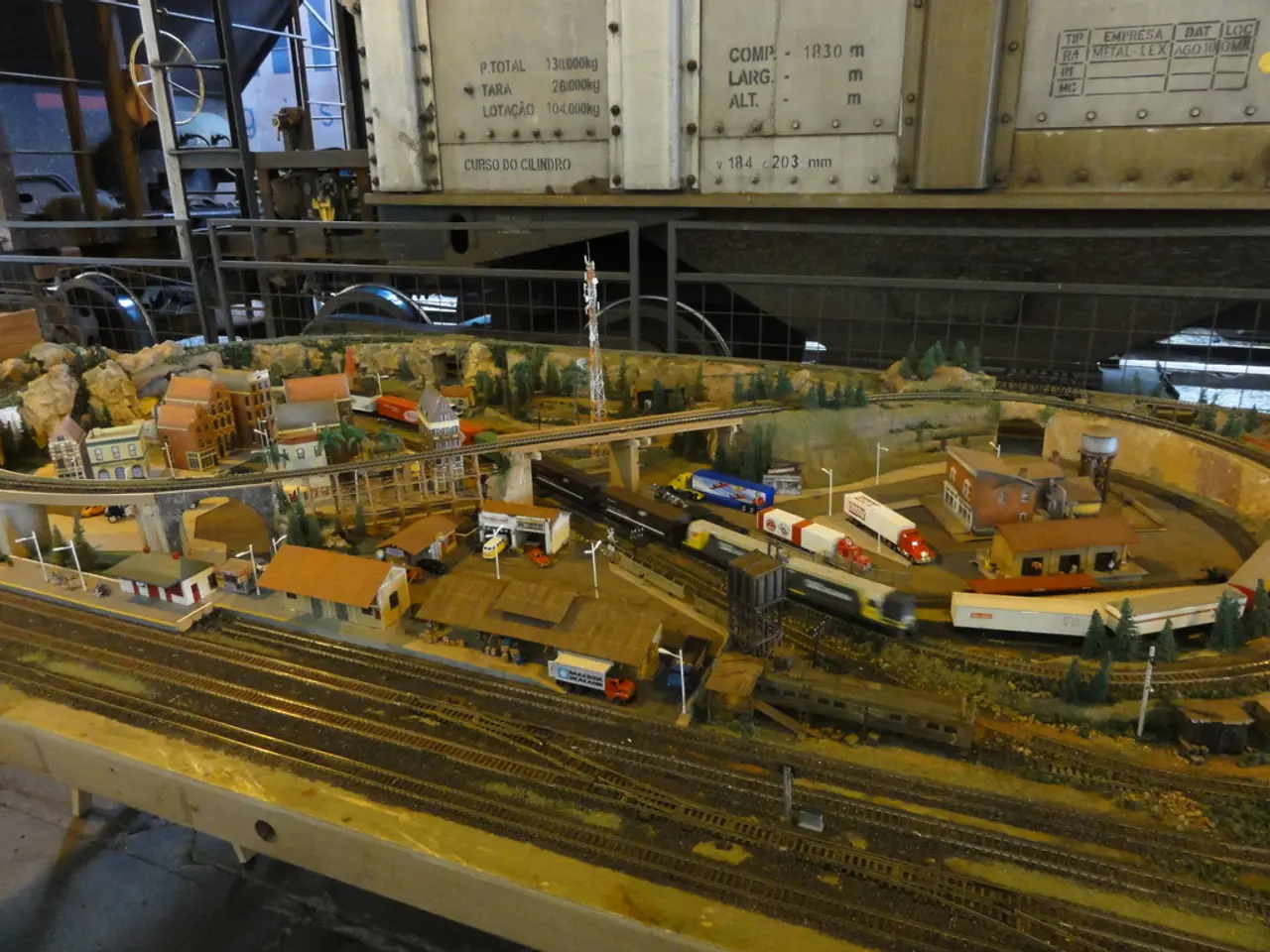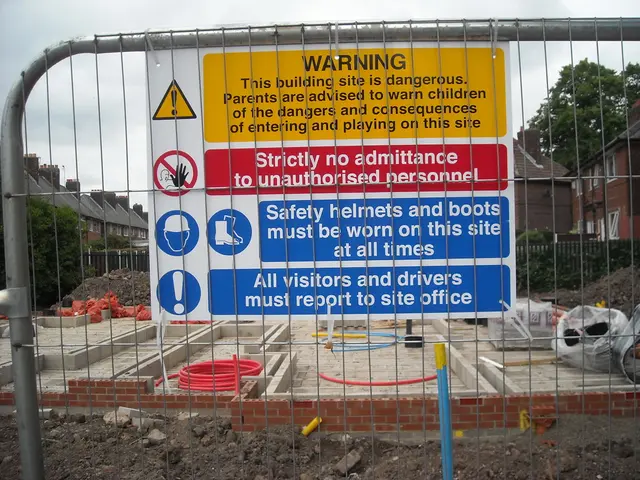Expansion Plans for Significant Construction Project: Multiple Options Set in Stone - Expansion plan for the train station: possible choices outlined
The city of Erfurt in Germany is set to witness significant changes in its railway infrastructure over the next decade. The ICE (Intercity Express) hub in Erfurt is slated for a major expansion, aiming to increase its capacity and efficiency, particularly on the Nuremberg–Erfurt and Erfurt–Leipzig/Halle high-speed lines [1][5].
The project, estimated to cost around 669 million euros, is part of around 180 nationwide projects aimed at implementing a nationwide rail timetable [2]. Deutsche Bahn, the national railway operator, has already successfully tested record speeds of 405 km/h on the Erfurt–Leipzig route, demonstrating the infrastructure's capacity for high performance and potential for future enhancements [3].
The expansion project is expected to involve the construction of new platforms, enhancements to the track layout, and updated signaling to expand the node's capacity and minimize bottlenecks at Erfurt, a key hub in Germany's ICE network [1].
The primary objective of the project is to accommodate more ICE trains and improve travel times. The goal is to reduce the travel time on the ICE route from Erfurt to Nuremberg from the current 67 minutes to 56 minutes [1].
While the project will undoubtedly impact the landscape due to the scale of construction required, specific details on environmental or landscape changes are not yet available [1]. However, it is common for such projects to involve modifications to station buildings, track realignments, and possible impacts on surrounding areas during construction.
Economically, the investment underscores a commitment to sustainable mobility and regional development by improving transport links, likely boosting connectivity, local business, and passenger volumes [1][3]. The increased speed and frequency of ICE trains can reduce travel times, benefiting commuters and long-distance travelers, which supports economic activity in the region.
Preliminary planning for the project in Erfurt is scheduled to begin in 2026, with construction expected to start in the second half of the 2030s [2]. The construction period for the project is approximately six years [2].
In conclusion, Erfurt’s Station Expansion Major Project intends to enable higher ICE train capacity and reduced travel time by enhancing station infrastructure, leveraging advanced high-speed technology, and thereby supporting the sustainable mobility and economic growth of the region, with expected but as yet unspecified landscape impacts from construction [1][3][5].
The City of Erfurt in Germany, while working on a major upgrade in its railway infrastructure, has employment opportunities in the construction sector for vocational training in relation to the Erfurt Station Expansion Major Project. This project, in partnership with the finance sector, aims to ensure the railway network's future-readiness by utilizing modern technology and increasing collaboration with the local industry for efficient transportation. The community policy will need to address potential environmental impacts and facilitate sustainable regional development during and post-construction.




